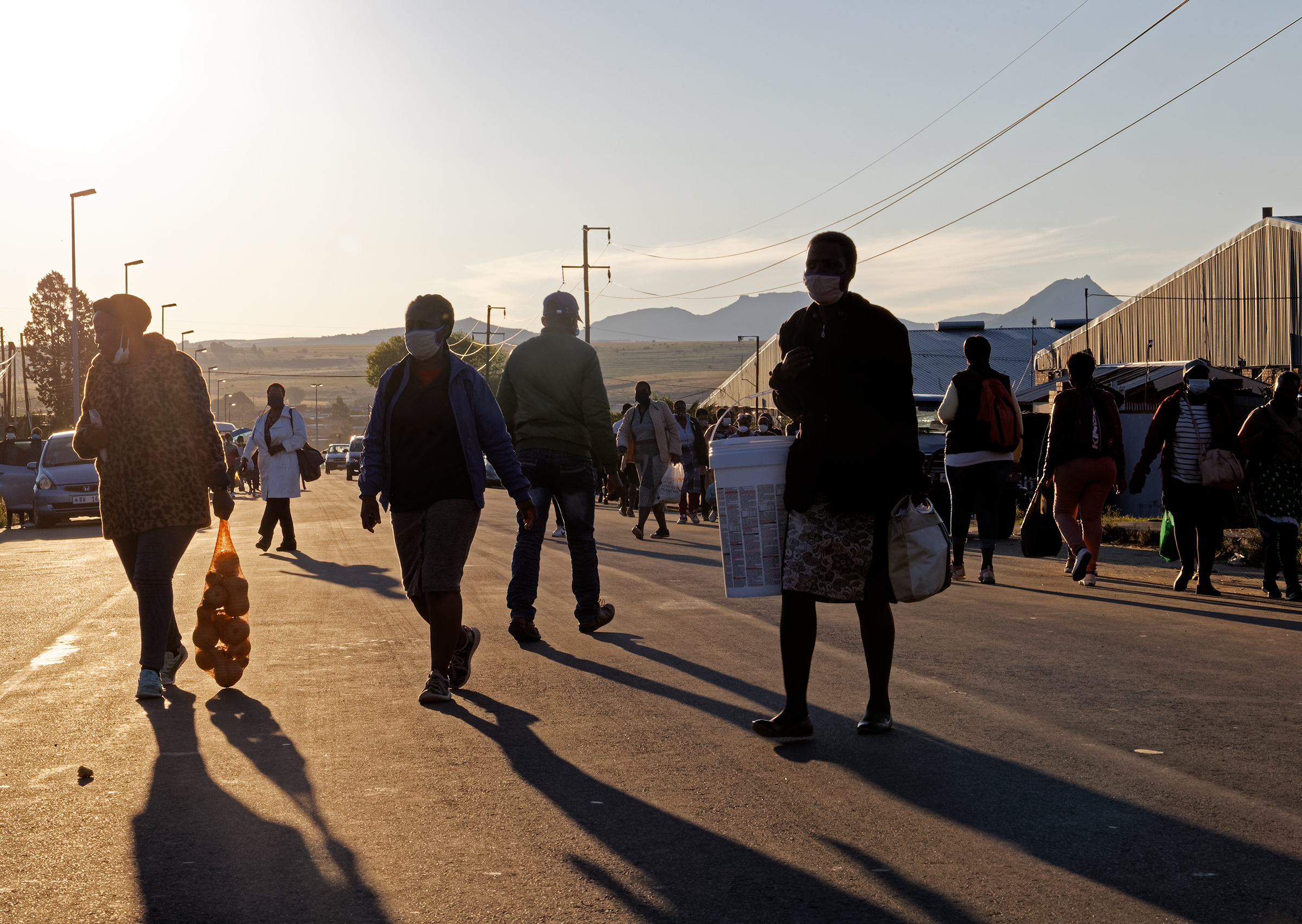Editor’s Note: This story was updated June 10, 2021 to reflect changes that occurred at Hippo Knitting factory as the result our reporting. This story was first published online on May 5, 2021.
Employees at a garment factory in Lesotho, a tiny country in southern Africa, say they have lived in fear for years. Each day at 7 a.m., as their sewing machines whirred, a familiar panic rose in many of them: It’s not safe here.
At least 38 current workers say abuse and harassment took place within the walls of Hippo Knitting, a Taiwanese company located in Lesotho’s capital, Maseru, an investigation by TIME and the Fuller Project found. All employees interviewed asked to remain anonymous out of safety concerns and fear of losing their jobs.
The factory, which employs 1,000 garment workers, about 90% of whom are women, predominantly supplies one brand: Fabletics, a popular U.S. athletic apparel line co-founded by actor Kate Hudson.
Thirteen women interviewed say their underwear and vulvas were often exposed during routine daily searches by super-visors. Another woman says a male supervisor tried to pressure her into a sexual relationship, while three women allege male supervisors sexually assaulted them. Several of those workers added that they were often humiliated and verbally abused by management. Workers say they were forced to crawl on the floor by one supervisor as a punishment. In one instance, a woman says she urinated on herself because the same supervisor prevented her from accessing the bathroom.
After TIME and the Fuller Project reached out to Fabletics on April 29 for comment on the alleged abuse at Hippo Knitting, the brand vowed to do “everything in [their] power to further remedy the situation,” according to a spokesperson. The brand immediately suspended operations with Hippo Knitting and sent a “senior leader” to Lesotho to investigate.
“The top priority for Fabletics is the workers who are impacted, and we are committed to providing their full pay during the course of the investigation,” the spokesperson wrote in an email sent May 2. Workers and unions in Lesotho confirmed that production at Hippo Knitting stopped on May 3. The investigation is ongoing, according to Fabletics.
A representative for Kate Hudson said she had no knowledge of the reports before TIME and the Fuller Project reached out and that “Fabletics management attested to Kate that they maintain the highest ethical and social standards in their factories and workplaces and have commenced a full and comprehensive investigation.”
Many workers say they’ve been working under these conditions for years. In recent weeks, Hippo Knitting and factories across Lesotho closed because of massive worker strikes, part of a growing movement for better pay and improved working conditions. Last month, garment workers barricaded the roads with rocks, logs and broken streetlamps, blocking traffic for hours. Police deployed water cannons and rubber bullets to disperse protesters, while at least two workers died during the clashes, according to media reports. Spearheaded by various trade unions in Lesotho, the strikes coincided with the investigation of alleged abuse at Hippo Knitting. Many of the factory’s employees took part in the protests to continue demanding change.
“We are tired, we need help, we work with bleeding hearts,” says a woman who has worked at Hippo Knitting for a decade.
In the ‘80s, Taiwanese and South African companies set up some of the first garment factories in Lesotho, a landlocked country encircled by South Africa. They were drawn by its low labor costs, tax benefits, and access to both the southern African and international markets. When then-President Bill Clinton signed a trade deal called the African Growth and Opportunity Act in 2000, allowing duty-free exports to the U.S., the industry boomed. In the four years after, the number of people employed in the sector jumped to 54,000 workers—a 260% increase—according to the United States Agency for International Development (USAID) TradeHub.
Today, the thriving garment industry is Lesotho’s second-largest employer, and its workers, an estimated 90% of whom are women, craft clothes for some of America’s most prominent brands: Levi Strauss, Wrangler, JCPenney and Walmart. The U.S. is the largest recipient of Lesotho’s garment exports, worth $303 million in 2019, according to USAID TradeHub. While the country is known for specializing in denim, the largest part of its apparel industry is dedicated to knit garments: T-shirts, tracksuits and sportswear, such as Fabletics’ fast-fashion leggings that sell for $50 a pop.
In a country with persistently high unemployment rates, a steady decline in opportunities for men in the South African mining sector coincided with increased employment for women in Lesotho’s garment industry, and women are now often the breadwinners of their households. Most of the Hippo Knitting employees interviewed were paid roughly $150 per month.
“I hate my job, but I cannot leave because there is nowhere else,” says one female employee at Hippo Knitting.
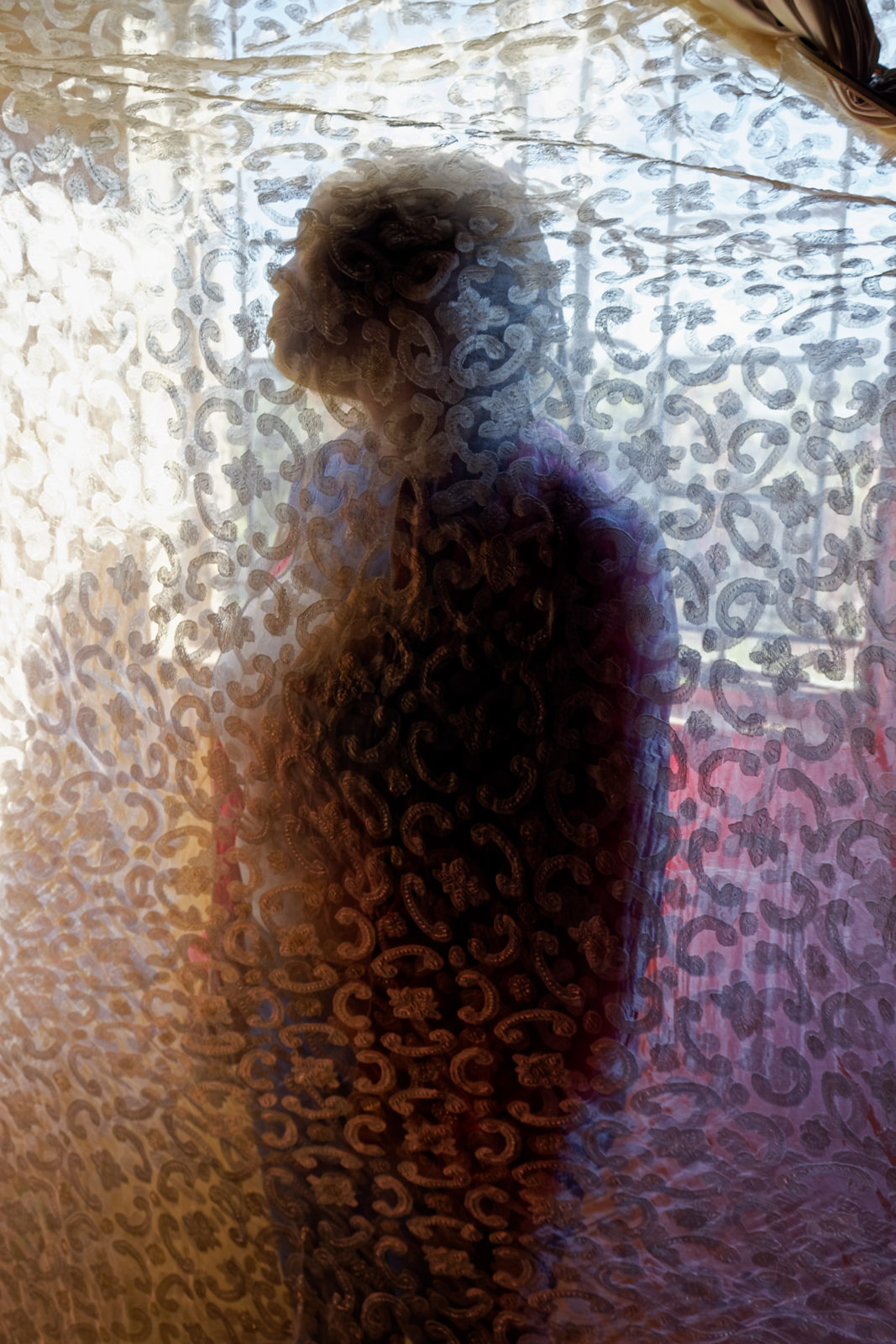
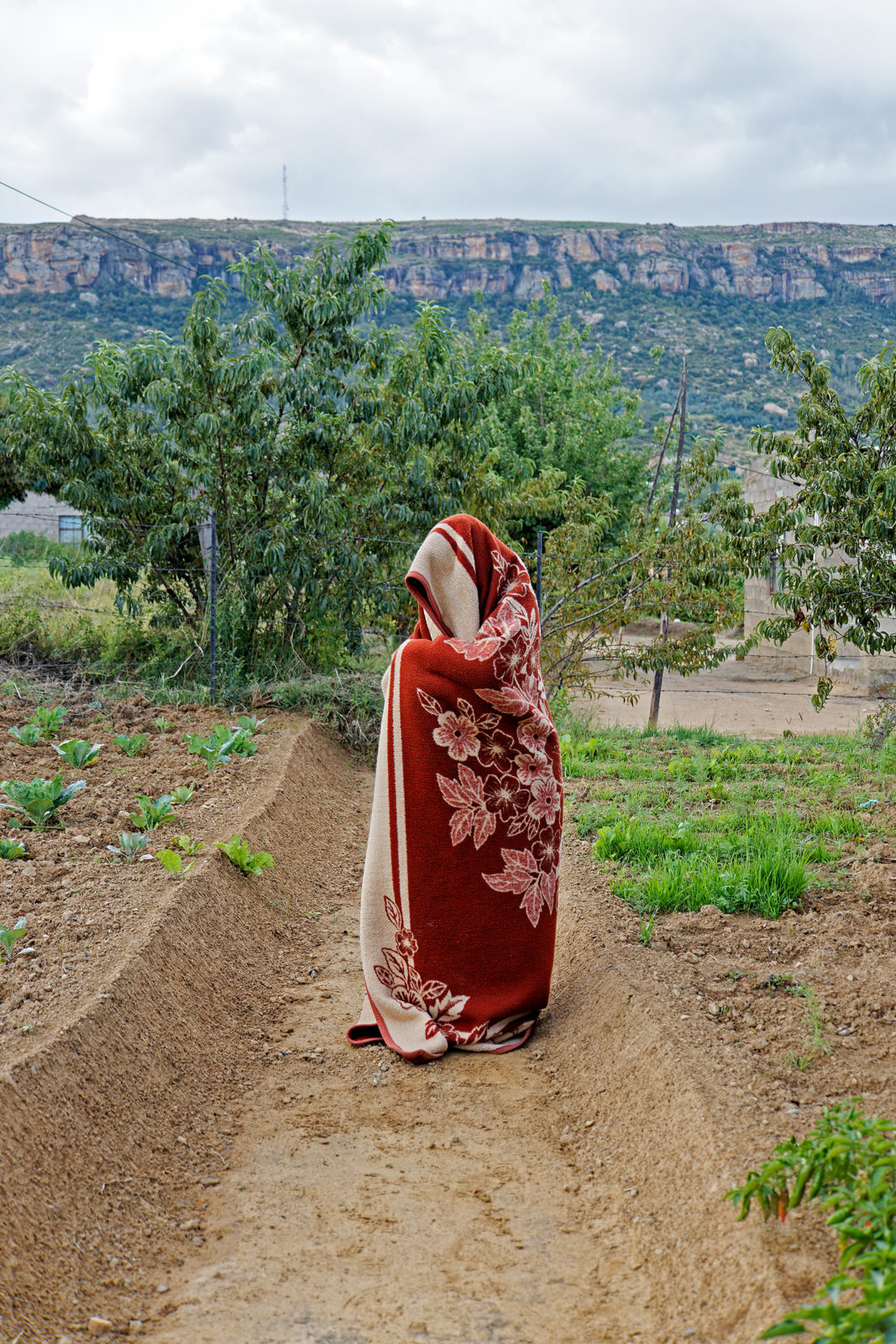
Two years ago, a report by Workers Rights Consortium, a U.S.-based NGO, revealed widespread rape, sexual harassment and assault at three factories in Lesotho. The Taiwanese company that owns the factories, Nien Hsing, and the three U.S. brands that produce there—Levi’s, the Children’s Place and Kontoor Brands (owners of Wrangler and Lee)—then signed what’s referred to as the Lesotho Agreement in a bid to protect workers from gender-based violence. As a result, employees must now attend training led by the unions and women’s-rights groups. An independent body, with authority to dismiss perpetrators, was also set up to investigate complaints of harassment by supervisors and managers at the factories.
At the time, the three U.S. brands said they believed the program could “create lasting change” and that they were committed to making female workers feel “valued and empowered.” Female employees have since said the Nien Hsing factories feel safer. But there are roughly 50 more factories across the country, including Hippo Knitting, where rights groups fear abuse goes unchecked. Meanwhile, the government in Lesotho has only offered a tepid response to the issue.
Over the course of 40 interviews, seamstresses, cutters and cleaners at Hippo Knitting factory allege that verbal abuse and harassment have been rife for years. But several say the unwanted touching during daily searches has worsened during the pandemic because different supervisors are now in charge.
At least 11 of the incidents detailed by employees have been independently verified with unions in Lesotho, family members or friends, and fellow workers in the factory. TIME and the Fuller Project have not been able to independently verify all of the workers’ claims, but several Lesotho-based unions say their stories are common—and reveal a wider pattern of abuse across the garment industry.
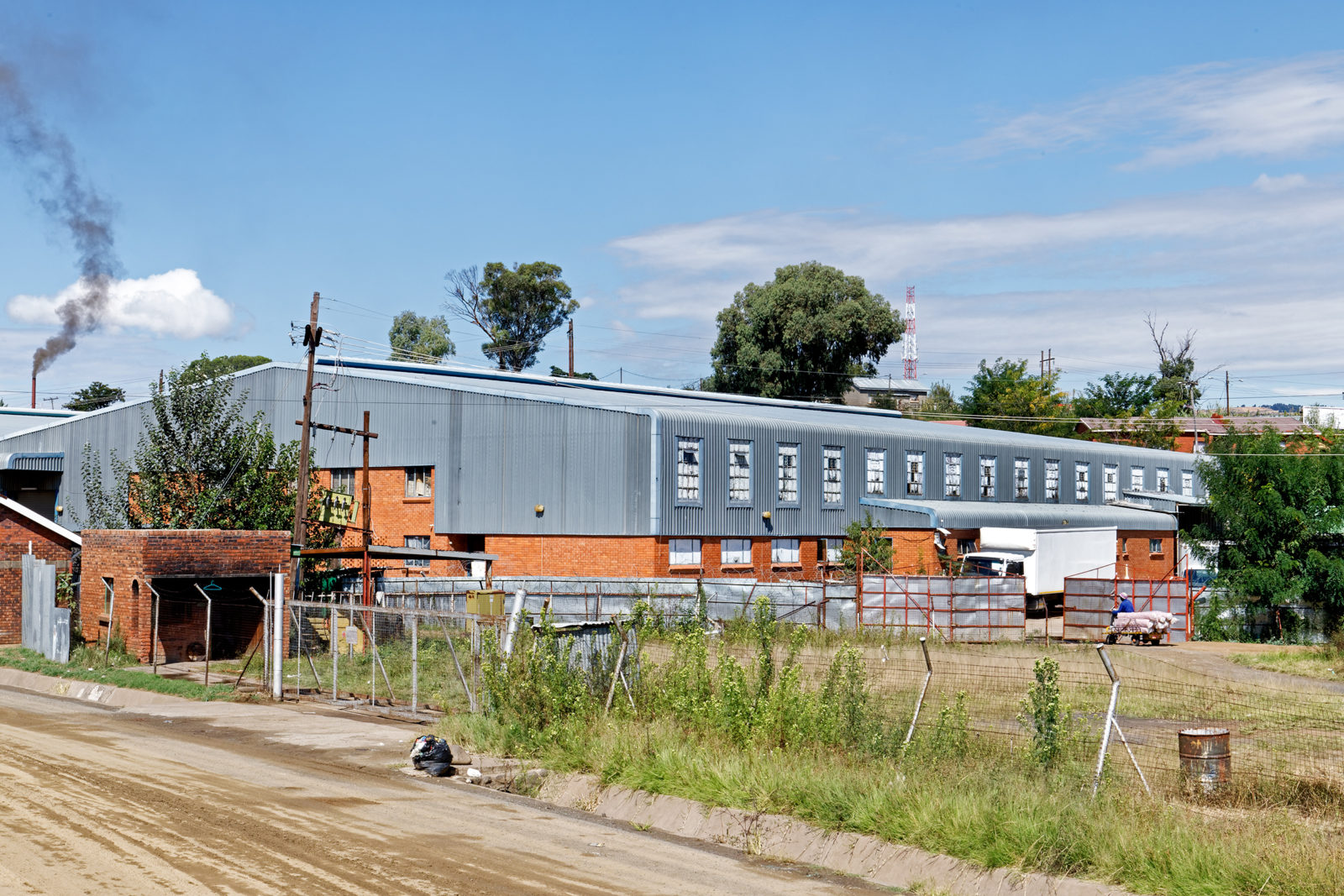
Each weekday, many of Hippo Knitting’s workers set off on foot before dawn from nearby villages to arrive at the factory gate on time.
Workers have long worn masks to protect against fabric dust. Since the pandemic, management has introduced safety measures, including disinfecting the factory every couple of weeks and setting up hand-sanitizing stations, though workers point out that social distancing is nonexistent and windows are frequently closed, causing concern about poor air circulation. While Lesotho has only recorded a total of 318 COVID-19 deaths, it saw rising cases earlier this year.
Sewage from a septic tank spews onto the factory yard floor, where employees eat their lunch every day, workers say. “The stench is horrible,” says one seamstress, “we breathe it [in] all day.” At lunch and shortly after workers clock out at 5 p.m., supervisors conduct routine body searches as staff exit the building, checking for stolen items with little privacy.
“A supervisor pulled my jeans down, pulled my tights elastic toward her and let go … it slapped my [fibroids] operation wound. I was in so much pain,” says one female employee. “She has done this to numerous women … and told several that they don’t shave their private parts.” At least three workers in the factory independently mentioned that they witnessed the operation wound incidentduring their interviews with TIME and The Fuller Project.
Another female employee says she experienced almost daily harassment from a male supervisor for six months. Halfway through 2020, she says her male supervisor started remarking on the way she looked.
“He made comments about my weight, that I have a beautiful body … the things he would do to me if he got the chance,” she says over the phone, her voice matter-of-fact. When she refused to engage in a sexual relationship, he “started trying to make my work hell,” assigning her increasingly difficult sewing styles, she says.
After she reported his behavior to the factory’s HR department, he was moved to another production line. She says she feels safer now but is concerned the issue has not been dealt with properly. “Many women have gone through this; it is not just me,” she says. When asked about the male supervisor’s behavior toward women, another female employee who has worked at the factory for over a decade said it was common knowledge. “Everyone knows [about him],” she says.
TIME and The Fuller Project spoke with three women who say they have been sexually assaulted by male supervisors, including incidents where supervisors grabbed the workers’ genitals and repeatedly smacked their buttocks.
“Most of the factories [across Lesotho] have sexual harassment,” says Tsepang Makakole, deputy general secretary of Lesotho’s National Clothing Textile and Allied Workers Union (NACTWU), which represents more than 4,000 workers. “But people are afraid to lose their jobs.”
Makakole noted the landmark Lesotho Agreement gave workers at the Nien Hsing factories the confidence to report harassment issues to NACTWU. But without this system in place at other factories or among other employers, he fears workers are staying silent.
“If the factory doesn’t have [the Lesotho Agreement in place] … that’s the problem,” he says. “People know if they speak up it won’t be easy for them.”
Co-founded by Hudson in 2013, Fabletics began as an online brand selling what they describe as accessibly priced workout wear. Hudson and her partners, Adam Goldenberg and Don Ressler, saw a gap in the market for high-quality clothes that “you could perform in” but that were “cute, fashionable and affordable,” Hudson told the Daily Front Row, a fashion industry publication, in 2019.
With the help of Hudson’s star power, Fabletics took off. More than 1 million orders were shipped in the first six months, making it one of the “fastest-growing fashion brands in history,” according to Fabletics’ parent company, TechStyle Fashion Group (formerly JustFab Inc.).
Four years ago, Hudson said onstage at the Fast Company Innovation Festival that she believes Fabletics’ subscription model was the key to its success. Shoppers can opt to pay a monthly $49.95 fee in exchange for access to “VIP Member” prices (such as 50% off) to receive new gym wear through the mail.
All brands under the TechStyle umbrella—including ShoeDazzle, co-founded by Kim Kardashian, and singer Rihanna’s Savage x Fenty—rely heavily on subscription memberships. Over the years, customers have accused both Fabletics and TechStyle of scamming shoppers into unknowingly signing up for recurring monthly fees that are difficult to cancel. Amid criticism, in 2016, Fabletics vowed to make membership fees clearer though customers still regularly take to social media to decry the brand’s hidden costs.
Meanwhile, Fabletics has been hailed a retail success story, expanding quickly across Europe, Australia and Canada, and into more than 50 U.S. brick-and-mortar stores. In 2019, it raked in more than $400 million in sales. Celebrities such as singer Kelly Rowland are regularly enlisted to collaborate on limited collections. Last year, comedian Kevin Hart became an investor and the face of Fabletics Men, an extension of the women’s line, and has since curated a dual-gender collection with his wife Eniko for the brand.
Neither Rowland nor the Harts responded to multiple requests for comment.
On social media, the message from both Fabletics and Hudson is one of inclusivity, empowerment and sunny Californian confidence mixed with social justice. “When women rise, we all rise,” reads one Instagram caption on March 8, International Women’s Day, this year. After the police killing of George Floyd in Minneapolis last May, the brand committed to eradicating “racism, racial inequality and racial injustice.” On her own Instagram page, Hudson wrote: “[We] invite you to stand with us, in solidarity with the Black community. Let’s make a real difference—together.”
In an emailed statement, the Fabletics spokesperson described the allegations as “incredibly disturbing” and that they “go against everything that we stand for.” The brand has opened an investigation into the claims, and moved up a previously scheduled third-party audit of the factory.
Three workers confirmed production at Hippo Knitting stopped on May 3, after TIME and The Fuller Project raised the allegations, and the factory owner is also investigating.
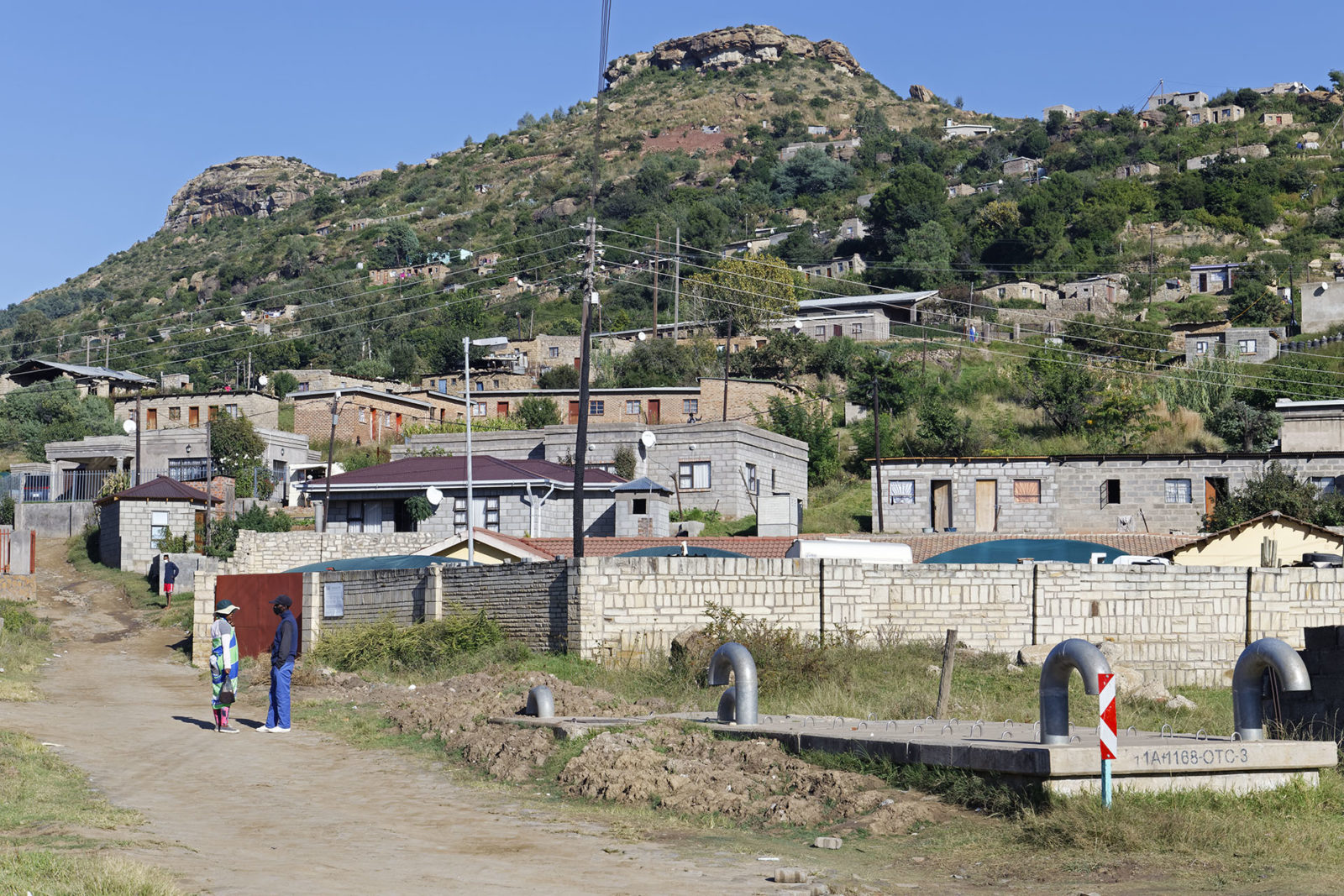
The fast-fashion industry has long relied on the exploitation of garment workers, who are predominantly women of color, to quickly produce low-cost clothing, and as Fabletics expands, women working thousands of miles away in unsafe environments have been bearing the burden. Rights groups say some brands maximize their own profits while often turning a blind eye to unpaid overtime and subpar human-rights standards.
“Global brands have long outsourced their responsibility,” says Mirjam van Heugten of the Clean Clothes Campaign, an Amsterdam-based alliance of labor unions and nongovernmental organizations. “The demand for fast fashion falls backward down the supply chain to these women, who are put under immense pressure with little protection.”
At Hippo Knitting, supervisors shout and pile on the pressure to hit their targets, say workers. One employee says they are given “loads” that are “not humanly possible.” Women are arranged in sewing lines of roughly 30 and are pushed to complete up to 1,400 garments each day.
If they miss the target, workers say management often forces them to stay beyond 5 p.m. without pay, violating Lesotho’s labor laws, which stipulate a 45-hour workweek limit. Across the industry, government enforcement of laws to protect workers from gender-based violence is also notoriously weak, say rights groups.
In the 1990s, retail giants like Nike were plagued by reports of workers paid less than $2 a day, and subsequently pledged to end child labor. Following the international outcry, fashion brands began to carry out voluntary social audits. Now, across the industry, brand representatives or independent third-party auditors will visit factories to ensure their suppliers are adhering to various labor, environmental and social standards, such as fire safety and workplace discrimination.
Factories that supply products for TechStyle and its affiliated brands, such as Fabletics, are contractually obliged to honor their “Ethical Sourcing Code,” which includes compliance with working hours, and prohibits discrimination and harsh and inhumane treatment of workers. To evaluate this, TechStyle says it “subjects its suppliers” to “random unannounced” audits.
In an emailed response to the allegations, Grace Lin, the owner of Hippo Knitting, confirmed that annual audits are conducted at the factory, the most recent taking place in April this year. But workers say management pressures them not to tell auditors the truth and threatens that they will lose their job if they do.
That comports with the warnings by advocates, who have long called voluntary inspections merely a box-ticking exercise designed to give brands deniability if problems later emerge. When asked about audits in Lesotho, Solong Senohe, general secretary of United Textile Employees (UNITE), another large union, said they are mostly ineffective and sometimes misused.
“The employees are hesitant to report the sexual and physical abuse, as it often amounts to no action against the managers,” says Marorisang Letseka, senior organizer at the Independent Democratic Union of Lesotho (IDUL), “and results in the worker being attacked to a point of wanting out of the job.”
The gray walls inside the men’s bathroom at Hippo Knitting are chipped and cracked, the floor punched with pockets of black dirt. Early one afternoon last year, a male employee was patiently waiting his turn to use the urinal, he says, when the female HR manager, Ellis Tseka, entered. She “pressed” him against the toilet door and “reached” for his zipper to try and touch his genitals, he says.
“I was angry,” he says over the phone. “I was so embarrassed by that lady. Why did she do that to me?”
In interviews with workers, many issues revolved around Tseka. She was both verbally and sexually abusive, says Letseka from IDUL. She was often present when harassment occurred and took no action, according to IDUL. Many workers say they reported incidents of abuse from other staff members to her, but very little changed.
The male employee reported the toilet incident to his union later that day, which advised him to take the matter to the labor court. “It’s like I’m in jail,” he says, referring to his workplace. “I have no right to say anything to anybody here.”
A female employee says Tseka forced her to crawl along the factory floor as punishment for being late. “I had an injury on my knees, and they were inflamed,” the employee says. “I cried the whole time, as I was in pain.”
She told her daughter about the incident, who confirmed to TIME and The Fuller Project that her mother’s knees were swollen when she arrived home from work that day last year.
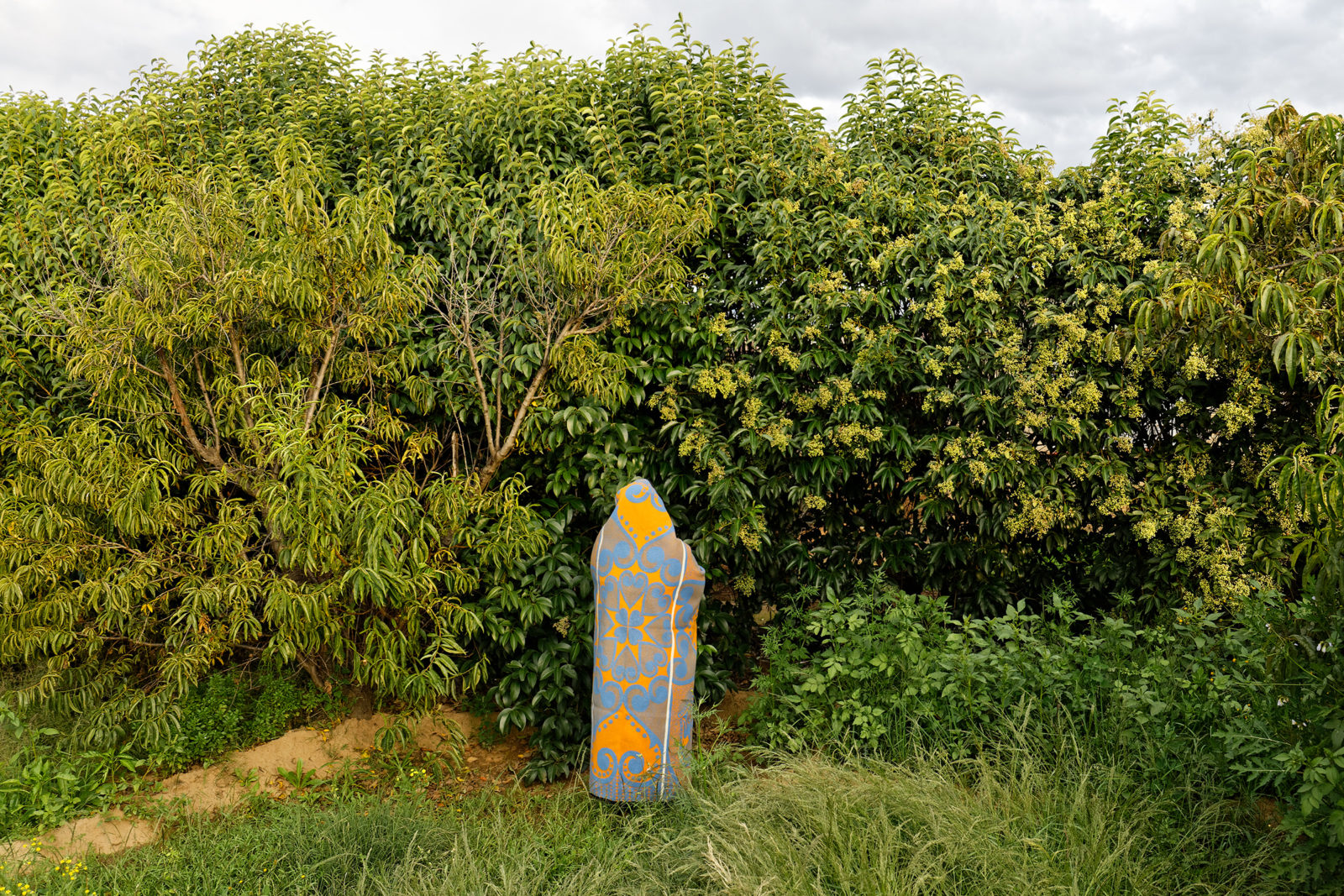
Unions and employees say practices inside the factory were also substandard. One female employee says she was made to operate heavy machinery late into her pregnancy, and that Tseka demanded to see a marriage certificate before giving her maternity pay. As the worker was unmarried, her child’s surname was different to hers. In order to obtain the right documentation, she married her partner.
TIME and The Fuller Project spoke to the worker’s husband, who confirmed his wife told him a marriage certificate was needed, and have viewed the paperwork she produced for Tseka.
Of all the sexual and verbal harassment inside the factory, many workers say Tseka’s behavior was the most damaging. The one person who should provide a safety net failed them, they say. “She is supposed to protect us,” says one female employee, “but if you go to her, you will come back even in more pain.”
In an emailed statement, Lin, the owner of Hippo Knitting, said she is “committed to addressing [the allegations] with the seriousness they deserve” and has “initiated a process of engaging an independent international auditor
to establish the credibility and basis of these allegations.”
Tseka is no longer employed at Hippo Knitting, according to Lin, who added that she is working with the unions “on a plan of action with clear time lines and deliverables to ensure that all these issues are addressed adequately.” Tseka did not respond to multiple email and phone call requests for comment.
Police in Lesotho are now investigating at least three cases of sexual offense and public indecency at Hippo Knitting, according to the national police spokesperson Mpiti Mopeli. “There are more allegations, though the victims are skeptical about reporting in fear of losing their jobs,” Mopeli said.
The perpetrators must be “brought to justice and expelled from the factory,” says one female employee. “As long as they are still present, then harassment won’t go away.”
For many on the ground, one viable option to help curb gender-based violence at garment factories could be to extend the new Lesotho Agreement across the entire industry. “I’ve been asked, even by [members of] the public, Why is the project only at Nien Hsing?” says Senohe from UNITE. “It should cover the whole industry, not only certain companies. Women at Hippo Knitting also want protection.”
Since this story first ran online on May 5, three Hippo Knitting employees have confirmed that they received their May salary, despite a reduction in work due to Fabletics’ investigations. While the brand has promised not to pull production, according to Letseka from IDUL and several Hippo Knitting employees, there are still concerns about layoffs and short time, whereby staff are sent home unpaid until there is more work.
At least one worker confirmed that management told him on May 28 not to return to work. He was on a temporary contract and said he was not provided with “any assurance” that he would return. Lin, the owner of Hippo Knitting, did not respond to multiple requests for comment on job cuts.
“They say we are causing instability in the factory,” says one female Hippo Knitting employee who spoke up about the abuses. “To Chan [the factory owner] says there is no work [and] the buyers are pulling their orders. [But] the investigators are always assuring us they are here to protect us, our jobs are secure and we should speak freely.”
Meanwhile, in the U.S, as a pandemic-pummeled retail industry lies in tatters, Fabletics has announced it’s expanding into 24 more stores across the country and launching a new fitness app. The brand’s success has yet to translate into any permanent improvement in working conditions in Lesotho. Nor has it quelled any sense of unease for workers.
“We need to be treated like human beings and not animals,” says one female Hippo Knitting employee. “We need to feel free.”
—With reporting by Madeline Roache and Maher Sattar


 Refiloe Makhaba Nkune
Refiloe Makhaba Nkune